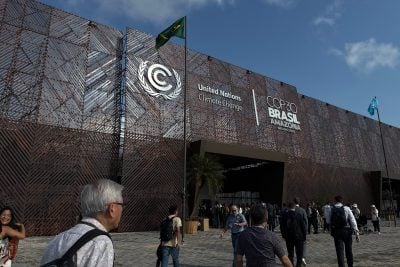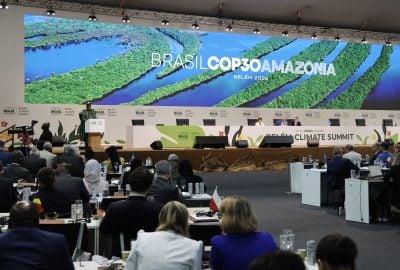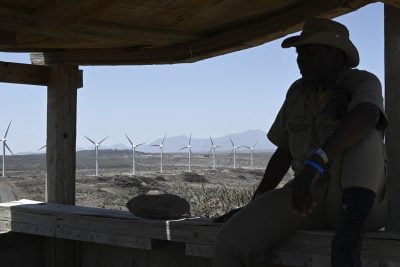Japan has, since the mid-nineteenth century, risen to become one of the world’s most industrialised countries. Its rise is all the more remarkable because the island nation has very limited domestic supplies of the natural resources that have typically powered industrial growth in other parts of the world. Today, Japan imports virtually all of the oil, natural gas and coal that together make up almost 85% of its energy supply.
Japan has traditionally relied on the Middle East for its oil imports, while Australia is its main source of liquefied natural gas (LNG). But as the country continues to wrestle with its never-ending energy security issue, it has begun to look at African markets as options for diversifying supply. Last June, for example, the Nigerian National Petroleum Company (NNPC) shipped LNG to Japan for the first time.
And, as it looks to the future, Japan is increasingly interested in exploring the uses of green hydrogen and green ammonia. This is where a partnership with Africa has the potential to be a game-changer.
Mixed fortunes in Mozambique
The African energy development that has seen the greatest Japanese involvement is undoubtedly the LNG project offshore from Mozambique. A joint venture between Japanese trading house Mitsui and the state-owned Japan Oil, Gas and Metals National Corporation (JOGMEC) holds a 20% stake in the Area 1 block operated by TotalEnergies.
The Japan Bank for International Cooperation, a publicly-owned financial institution, signed off a $3bn loan for the project in 2020 as part of an international consortium. Several of Japan’s largest private banks, including MUFG Bank, Mizuho Bank, Sumitomo Mitsui Banking Corporation (SMBC) and Sumitomo Mitsui Trust Bank, also participated in the consortium, while Nippon Export and Investment Insurance provided loan insurance.
When, or if, the LNG finally starts flowing, around 30% of Area 1 gas will be destined for Japanese utility companies under offtake agreements already signed.
“The purpose of Japan’s investment in Mozambique’s LNG project is to diversify its sources of natural gas imports,” says Masahide Takahashi, a senior research fellow at the Middle East Institute of Japan.
“The advantage of importing from Mozambique is that it avoids the Strait of Hormuz, a choke point,” he adds, noting that Japan remains “extremely concerned” that a blockade of the narrow strait in the Gulf could cause a repeat of the 1970s energy crisis.
Yet if Japanese investors saw Mozambique LNG as a test case for involvement in major African energy projects, they are surely concerned by the results. Total was forced to declare force majeure on the $20bn scheme in 2021 due to the insurgency in Cabo Delgado province – the kind of event that would seem to confirm the worst fears of those who perceive Africa as a high-risk environment.
Total is thought to be preparing to finally lift force majeure after the security situation improved and the US Export-Import Bank reapproved a loan. Several Japanese companies, including Chiyoda Corporation, will be involved in constructing onshore facilities once work does resume. But, with the project now years behind schedule, gas deliveries are not expected until 2030 at the earliest.
Renewables
While LNG producers in West or North Africa can supply the Japanese market, the distances involved in shipments make these regions less attractive to Japanese buyers. Outside Mozambique, there are few signs of Japanese companies or investors looking for opportunities in oil and gas projects in Africa.
“Japanese private companies see investing in the upstream energy sector in Africa as a relatively high-risk project,” says Takahashi. “I don’t think that African countries other than Mozambique will become important energy suppliers for Japan.”
Beyond oil and gas, there is a modest degree of Japanese involvement in renewable energy projects in Africa.
JICA, the Japan International Cooperation Agency, has provided loans for multiple green power projects in recent years. In November 2024, for example, it joined SMBC in providing a $150m loan to the Development Bank of Southern Africa for renewable projects in South Africa. Takehiro Yasui, JICA’s director-general for private sector partnership, said at the time that the loan could promote “further collaboration with partners in Southern Africa.”
Sometimes, though, the Japanese presence can go almost unnoticed. For example, Japanese companies are among the largest manufacturers of the turbines used in geothermal power stations in Kenya. Mitsubishi Heavy Industries has been supplying turbines to power plants in the Olkaria field since the 1980s, while Toyota Tsusho Corporation is the construction contractor for a new power station currently being built in the Menengai field.
Green hydrogen dreams
Nigerian-born Junaid Belo-Osagie occupies a position as one of the most senior African individuals working in a Japanese financial institution. And Belo-Osagie, the executive director for investment banking in Europe, the Middle East and Africa at Mizuho Bank, believes the Japan-Africa energy relationship can grow much deeper.
“Japan itself is geologically challenged and is geographically constrained to actually produce the clean energy that it needs,” he tells African Business. He notes that the country has ambitious plans to increase consumption of green hydrogen and ammonia, which it sees as crucial for its decarbonisation agenda, but will have to rely mainly on imports. “This is where there’s an intersection with Africa,” says Belo-Osagie. “Africa, on paper, essentially has huge amounts of renewable resources in wind and [solar] power, and naturally is a place that Japan should look to in terms of offtake of the energy that Japan needs.”
Several African countries are very well-placed to produce green hydrogen and ammonia on a large scale, due to the excellent conditions for solar and wind power. So far, however, African projects have struggled to compete with international rivals.
The biggest “pain point”, Belo-Osagie says, is the high cost of capital in Africa. He notes research by consultancy McKinsey finding that a 6% drop in the cost of capital could reduce the costs of hydrogen, “levelised” over the lifetime of the project, by 50%. African hydrogen developers, therefore, desperately need access to cheaper capital – and this is where Belo-Osagie believes Japan can help.
While Japan could be a source of concessional capital – reflecting very low interest rates in the country – Belo-Osagie argues that policy support from Japan could be even more transformative. He suggests that the Japanese government could extend its “contract for difference” programme, in which it subsidises domestic hydrogen producers by guaranteeing a minimum price, to Africa. “A number of us are having conversations ahead of TICAD” around such a scheme, he says.
This would mean, in practice, that Japan would subsidise African green hydrogen producers – while their profits would also be capped – in return for guaranteed supply to Japan. Belo-Osagie estimates that payback would be achieved after around 15 years as the initial subsidies help the industry to scale and deliver cheaper resources.
The TICAD summit will provide an opportunity to gauge the Japanese government’s level of interest in a mechanism along these lines. While it remains to be seen whether the country will emerge as a major partner for green hydrogen development, Belo-Osagie does believe a “mutually beneficial relationship” can flourish.
“Japan, just by dint of its culture, understands that in many of these two-way engagements, it’s a long-term investment,” he says. “There is no better country when it comes to taking a long-term view on things than Japan. So, there is hope.”
Want to continue reading? Subscribe today.
You've read all your free articles for this month! Subscribe now to enjoy full access to our content.
Digital Monthly
£8.00 / month
Receive full unlimited access to our articles, opinions, podcasts and more.
Digital Yearly
£70.00 / year
Our best value offer - save £26 and gain access to all of our digital content for an entire year!

 Sign in with Google
Sign in with Google 



